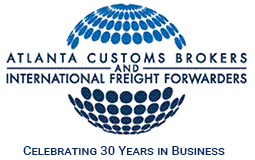Key Considerations for Requesting Quotes on Export/Import Customs Brokerage Services
In the fast-paced world of international trade, navigating export and import customs procedures can be complex and overwhelming. Businesses engaged in global commerce must secure accurate and transparent customs brokerage quotes to ensure smooth, cost-effective shipping operations. Understanding how to obtain precise quotes can significantly enhance your logistics strategy and financial planning.
Customs brokerage ensures goods move seamlessly across borders while complying with all regulations and standards. This guide provides essential tips for acquiring the best quotes for customs brokerage services—helping you maintain compliance, minimize costs, and gain a competitive edge in international trade.
What Are Customs Brokerage Services?
Before exploring how to get accurate quotes, it’s essential to understand the role of customs brokers. These licensed professionals facilitate the import and export of goods by managing customs documentation, tariff classification, duty calculations, and regulatory compliance. As intermediaries between businesses and government agencies, customs brokers streamline logistics, reduce risks, and prevent costly penalties or delays.
Engaging an experienced customs broker can save time, enhance compliance, and ensure the smooth movement of goods across international borders.
The Importance of Accurate Shipping Quotes
Accuracy in shipping quotes is crucial for budgeting and avoiding unexpected expenses. A well-detailed quote provides a clear breakdown of costs, including duties, taxes, brokerage fees, and transportation expenses. Transparent pricing enables businesses to compare providers effectively and select the best service for their specific needs.
Key Components of a Shipping Quote
Before requesting a quote, it’s essential to understand the elements that typically make up a detailed customs brokerage estimate:
- Tariff Classification: Identifies the correct tariff code for goods to determine applicable duties and taxes.
- Duties and Taxes: Includes import/export duties, value-added tax (VAT), and other government-imposed fees.
- Shipping Costs: Covers transportation expenses from origin to destination.
- Insurance Costs: Protects shipments against loss or damage during transit.
- Customs Brokerage Fees: Charges for customs processing and compliance services.
Steps to Obtain Accurate Shipping Quotes
To ensure you receive precise and beneficial quotes, follow these key steps:
1. Define Your Shipping Needs
Clearly outline your shipment details, including:
- Type of goods
- Destinations
- Frequency of shipments
- Declared value
- Import/export requirements
Providing complete and accurate information helps brokers generate precise quotes tailored to your needs.
2. Provide Comprehensive Documentation
To avoid delays and ensure an accurate estimate, submit essential shipping documents upfront:
- Commercial Invoice: Details the transaction between buyer and seller.
- Packing List: Provides a detailed list of items in the shipment.
- Certificate of Origin: Verifies the country of origin of the goods.
- Bill of Lading: Serves as a contract between the shipper and carrier.
3. Request Multiple Quotes
Compare quotes from multiple customs brokerage providers to assess pricing, services, and terms. Be cautious of unusually low quotes, which may exclude necessary services or hidden fees.
4. Assess the Broker’s Qualifications
Not all brokers provide the same level of service, so it is essential to evaluate their qualifications and track record before making a decision. Start by verifying their licensure and certifications to ensure they meet industry standards and regulatory requirements. Consider their level of expertise in the shipping industry, particularly their experience with specific shipping routes relevant to your needs. Reviewing client feedback and reputation can provide valuable insights into their reliability and customer service. A trustworthy broker should have a strong history of successful shipments, adherence to compliance regulations, and a commitment to delivering efficient and secure transportation solutions.
5. Evaluate Customer Service
Customs brokerage requires timely and responsive support to ensure a smooth and efficient shipping process. When evaluating brokers, consider their response time to inquiries, as delays in communication can lead to costly shipping disruptions. Their knowledgeability in addressing concerns is also crucial, as a well-informed broker can help navigate complex customs regulations and prevent potential compliance issues. Additionally, assess their availability throughout the shipping process, ensuring they provide consistent support from documentation preparation to final clearance. A reliable customs broker should be proactive, accessible, and equipped to handle any challenges that may arise during transit.
6. Review Terms and Conditions
Examine the fine print of each quote to identify hidden fees or ambiguous terms. Clarify unclear conditions with the broker to avoid unexpected costs later.
7. Consider Long-Term Partnerships
Establishing a strong relationship with a trusted broker can provide significant long-term benefits for your business. A well-developed partnership may lead to preferential pricing, as brokers are more likely to offer competitive rates to loyal clients. Additionally, working closely with a reliable broker can improve service levels, ensuring faster response times, greater attention to detail, and a more personalized approach to your shipping needs. Over time, the broker will gain a deeper understanding of your business operations and shipping patterns, allowing them to anticipate challenges, recommend cost-saving strategies, and streamline logistics for greater efficiency.
Common Mistakes to Avoid When Getting Quotes
Even with a straightforward process, businesses often make costly mistakes when obtaining customs brokerage quotes. By being aware of these pitfalls, you can navigate the process with confidence and avoid unnecessary stress.Even with a straightforward process, businesses often make costly mistakes when obtaining customs brokerage quotes.
1. Providing Inaccurate Information
Errors in product descriptions, incorrect tariff codes, or missing details can result in inaccurate quotes and potential legal issues. Double-check all provided data.
2. Overlooking Hidden Costs
Some brokers include additional charges that may not be immediately visible. Always ask about:
- Extra documentation fees
- Storage fees
- After-hours processing charges
Understanding all costs upfront prevents unexpected expenses later.
Choosing the Right Customs Brokerage Partner
Selecting the right customs broker is a critical decision that can impact your international shipping success. Look for a provider with:
- Expertise in your industry and shipping routes
- A reputation for reliability and compliance
- Strong customer support and transparency
The Atlanta Customs Brokers Advantage
At Atlanta Customs Brokers, we offer tailored, professional customs brokerage solutions to ensure seamless cross-border transactions. Our expertise, integrity, and commitment to customer satisfaction set us apart. Whether you’re new to international trade or an experienced importer/exporter, we provide the guidance and support needed to navigate global logistics efficiently.
Partner with us today to simplify your customs process and optimize your shipping strategy. Explore our resources or contact our team to discuss your international trade needs.

